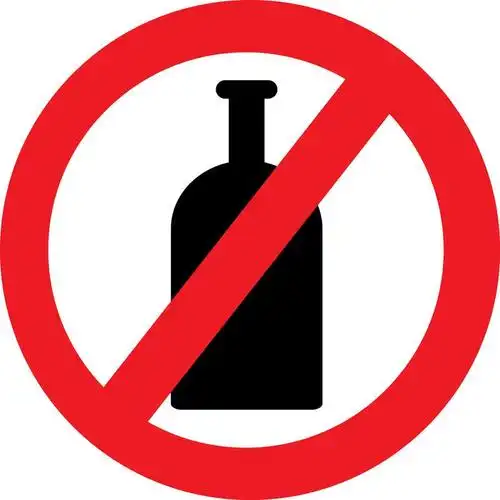Choosing Unflavored Snacks to Support Alcohol Cessation
When embarking on the journey of alcohol cessation, many individuals overlook the importance of dietary adjustments, particularly in their snacking habits. While the decision to quit drinking is often driven by a desire for better physical and mental health, the transition can be challenging, both emotionally and physiologically. One effective yet underappreciated strategy is incorporating unflavored snacks into one’s diet. These simple, minimally processed foods can play a critical role in managing cravings, stabilizing mood, and supporting overall wellness during this transformative period.
Understanding the Connection Between Alcohol Cessation and Dietary Needs
Alcohol cessation affects the body in multiple ways. For regular drinkers, alcohol often serves as a source of empty calories, and its removal can lead to a sudden drop in daily caloric intake. This can trigger sugar cravings, as alcohol metabolizes into sugar, and the body may seek alternative sources to compensate. Additionally, alcohol withdrawal can cause fluctuations in blood sugar levels, leading to irritability, fatigue, and increased hunger. These physiological changes make it essential to choose snacks that provide sustained energy without exacerbating cravings or causing energy crashes.
Unflavored snacks, such as plain nuts, rice cakes, unsweetened yogurt, or whole-grain crackers, offer a balanced alternative. They are typically low in added sugars, sodium, and artificial flavors, which can help regulate blood sugar levels and reduce the risk of triggering old habits. Moreover, these snacks are often rich in fiber, protein, and healthy fats, promoting a feeling of fullness and reducing the urge to reach for less healthy options.
The Role of Unflavored Snacks in Managing Cravings
Cravings during alcohol cessation are not solely psychological; they are deeply rooted in the body’s biochemical adjustments. Alcohol consumption alters neurotransmitter activity, particularly dopamine and serotonin, which are associated with pleasure and mood regulation. When alcohol is removed, the brain seeks other ways to stimulate these neurotransmitters, often through sugary or highly flavored foods. Unfortunately, many flavored snacks—such as chips, candy, or sweetened beverages—mimic the rapid dopamine release that alcohol provides, potentially reinforcing addictive patterns.
Unflavored snacks, by contrast, provide a more gradual and stable release of energy. For example, a handful of almonds offers healthy fats and protein, which help maintain steady blood sugar levels and prevent sudden spikes and crashes. This stability can reduce the intensity of cravings, making it easier to resist the temptation to relapse. Furthermore, the simplicity of unflavored snacks encourages mindfulness, allowing individuals to reconnect with their body’s true hunger signals rather than eating out of habit or emotional need.
Nutritional Benefits of Unflavored Snacks

Beyond craving management, unflavored snacks offer significant nutritional advantages that support the body’s recovery during alcohol cessation. Chronic alcohol use can deplete essential nutrients, including B vitamins, magnesium, and zinc, which are vital for energy production, nerve function, and immune health. Incorporating nutrient-dense, unflavored snacks can help replenish these deficiencies.
Plain Greek yogurt, for instance, is an excellent source of protein and probiotics, which aid digestion and support gut health—a common area of concern for those recovering from alcohol use. Similarly, unsalted nuts and seeds provide magnesium and healthy fats, which can help reduce anxiety and improve sleep quality. Whole-grain options like oatmeal or brown rice cakes offer complex carbohydrates that supply lasting energy without causing blood sugar fluctuations.
Practical Tips for Incorporating Unflavored Snacks
Adopting a new snacking habit requires planning and mindfulness. Here are some practical strategies for integrating unflavored snacks into a daily routine during alcohol cessation:
- Prepare in Advance: Keep a stash of unflavored snacks readily available at home, work, or on the go. This reduces the likelihood of opting for less healthy alternatives when hunger strikes unexpectedly.
- Combine for Balance: Pair unflavored snacks with other nutrient-rich foods. For example, add a tablespoon of unsweetened peanut butter to apple slices or enjoy plain popcorn with a sprinkle of nutritional yeast for added flavor without excessive salt or sugar.
- Listen to Your Body: Pay attention to hunger cues and eat mindfully. Unflavored snacks can help distinguish between physical hunger and emotional cravings, providing an opportunity to develop healthier eating patterns.
- Stay Hydrated: Sometimes, thirst is mistaken for hunger. Drinking water or herbal tea alongside unflavored snacks can enhance satiety and support overall hydration.
The Psychological Impact of Simplicity
The process of alcohol cessation is not just physical; it is also a mental and emotional journey. Choosing unflavored snacks can symbolize a broader commitment to simplicity and mindfulness. In a world saturated with highly processed, hyper-palatable foods, opting for plain, whole foods can be an act of self-care and intentionality. It encourages individuals to appreciate the natural flavors of food and fosters a deeper connection to their dietary choices.
Moreover, unflavored snacks can serve as a grounding tool during moments of stress or anxiety—common experiences during withdrawal. The routine of preparing and consuming simple, nourishing foods can provide a sense of control and stability, counteracting feelings of chaos or uncertainty that may arise during this period.
Conclusion
Alcohol cessation is a multifaceted process that benefits greatly from holistic support, including dietary adjustments. Unflavored snacks, though seemingly modest, offer a powerful means of managing cravings, stabilizing mood, and promoting physical health. By prioritizing simplicity and nutrition, individuals can create a sustainable foundation for recovery, one snack at a time. Whether you are just beginning your journey or seeking to maintain long-term sobriety, embracing unflavored snacks is a step toward greater well-being and self-awareness.




发表评论